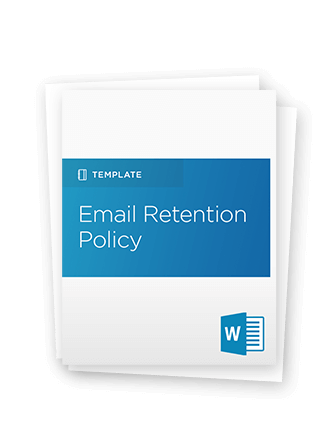Everything You Need to Know About eDiscovery

From small and medium-sized businesses to enterprises, nearly every organization will go through litigation at some point in time. Most civil and criminal cases are accompanied by electronic discovery requests. Haven’t undergone litigation, or are currently preparing for your first legal case? There’s no time like the present to familiarize yourself with all things eDiscovery.
What is eDiscovery?
Electronic discovery — also known as eDiscovery — is the process by which electronically stored information (ESI) is located, procured, reviewed and exchanged for the purpose of using as evidence in civil or criminal legal proceedings. ESI comes in many forms, including emails, text and SMS messages, instant messages, social media communications, spreadsheets, Microsoft Word documents, accounting databases, CAD/CAM files, smartphone applications and more.
Rules 26 and 34 of the Federal Rules of Civil Procedure, which regulate eDiscovery, dictate that all parties involved in litigation must submit relevant ESI when presented with an eDiscovery request, as well as identify their process for preserving and retrieving ESI.
How Does eDiscovery Work?
The standard eDiscovery process begins when a lawsuit is foreseeable. Attorneys representing both litigants will determine the scope of the eDiscovery request, identify the relevant ESI and place it on legal hold. Once an eDiscovery request has been issued, the litigants must present all relevant ESI for collection and analysis, at which point it will be converted into a PDF or TIFF file for use in court.
Though this might seem relatively straightforward, it’s worth noting that eDiscovery isn’t a one-time action or event, but rather an ongoing process. Businesses can’t just conjure ESI out of thin air every time they receive an eDiscovery request — they need to build policies and procedures around eDiscovery and consistently enforce them to ensure that all ESI is properly archived and maintained.
What Are Some Common eDiscovery Challenges?
Organizations without a stringent electronic discovery policy and plan in place are likely to encounter the following challenges:
- Time Wasted Tracking Down Emails — Assuming that your office server has the capacity to store all of your emails, you might not be able to locate a specific file on your office’s backup system. Even if you are successful, tracking down a single email is a time-consuming endeavor and takes time away from other important tasks.
- Difficulty Ensuring the Integrity of Emails — Without a solid eDiscovery strategy in place, the risk of retrieving corrupted or infected data — or the wrong data altogether — increases.
- Risks Related to Privacy Exposure — The longer it takes to locate the ESI included in an eDiscovery request, the greater the risk of exposing sensitive employee information.
- Missed Deadlines — In federal inquiries, eDiscovery requests have strict deadlines and are laden with federal compliance regulations; failure to meet these deadlines or comply with these regulations could result in serious consequences.
How Can My Organization Prepare for eDiscovery Requests?
There are a few best practices every organization should observe to prepare for eDiscovery:
- Develop a proactive collection strategy
- Introduce comprehensive data retention and retrieval policies
- Maintain a chain of custody and thorough documentation
- Encourage your IT and legal teams to work together
- Stay up to date on regulatory changes
- Prioritize systems and repositories that present the greatest risk
The best way to ensure that your organization is prepared for electronic discovery requests is to archive each and every email sent or received by your employees. The best way to do this — and to protect yourself against potentially high litigation costs and compliance issues — is to use a reliable cloud-based or on-premises email archiving and retrieval service. Such a service should be able to quickly, accurately and appropriately retrieve just those specific emails requested or subpoenaed by legal counsel.
A dedicated email archiving and retrieval service comes with the added benefits of reducing (or eliminating entirely) the risk of lost or stolen data and protecting data stored in your office email system.

